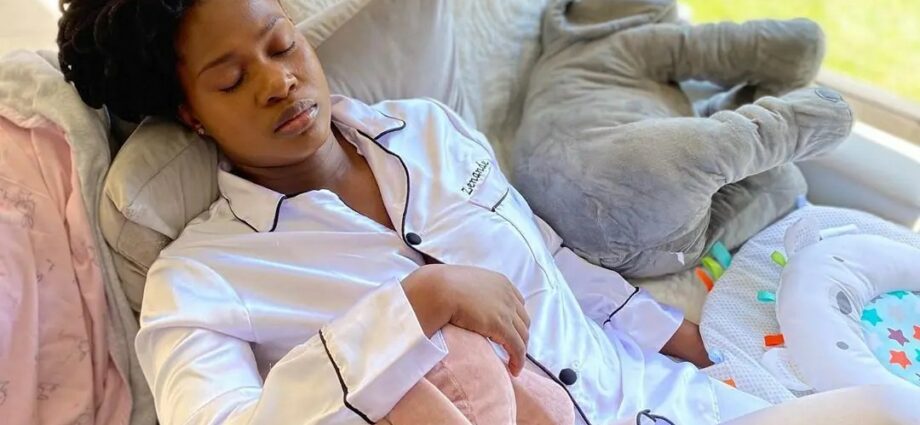Zentia (35 years old), is the mother of Zoe (5 years old) and Harlan (3 years old). She has lived in France for three years with her husband Laurent, who is French. She was born in Pretoria where she grew up. She is a urologist. She tells us how women experience their motherhood in South Africa, her country of origin.
The testimony of Zentia, South African mother of 2 children
“’Your child only speaks French?’, My South African girlfriends are always astonished, when they chat with our friends in France. In South Africa there are eleven national languages and everyone has mastered at least two or three. I, for example, spoke English with my mother, German with my father, Afrikaans with my friends. Later, while working in the hospital, I learned notions of Zulu and Sotho, the two most widely used African languages. With my children, I speak German to keep my father’s heritage.
IIt must be said that South Africa remains, despite the end of apartheid (racial discrimination regime established until 1994), unfortunately still very divided. The English, Afrikaners and Africans live separately, there are very few mixed couples. The difference between the rich and the poor is huge, and it’s not like in Europe where people from different social backgrounds can meet in the same neighborhood. When I was little, whites and blacks lived apart. In neighborhoods, in schools, in hospitals – everywhere. It was illegal to mix, and a black woman who had a child with a white risked jail. All this means that South Africa knows a real divide, each one has its culture, its traditions and its history. I still remember the day Nelson Mandela was elected. It was a real joy, especially because there was no school and I could play with my Barbies all day! The years of violence before that marked me a lot, I always imagined that we were going to be attacked by someone armed with a Kalashnikov.
To relieve colic in South African babies
Babies are given rooibos tea (red tea without theine), which has antioxidant properties and can relieve colic. Babies drink this infusion from 4 months old.
I grew up in a white neighborhood, between the English and the Afrikaners. In Pretoria, where I was born, the weather is always nice (in winter it is 18 ° C, in summer 30 ° C) and nature is very present. All the kids in my neighborhood had a big house with a garden and a pool, and we spent a lot of time outdoors. The parents organized very few activities for us, it was more the mothers who got together with the other mothers to chat and the children followed. It’s always like that! South African mothers are quite relaxed and spend a lot of time with their children. It must be said that school begins at age 7, before, it is the “kindergarten” (kindergarten), but it is not as serious as in France. I went to kindergarten when I was 4, but only two days a week and only in the morning. My mom didn’t work for the first four years and that was completely normal, even encouraged by family and friends. Now more and more mothers are returning to work faster, and this is a huge change in our culture because South African society is quite conservative. School ends at 13 p.m., so if the mom is working she has to find a nanny, but in South Africa it’s very common and not expensive at all. Life for mothers is easier than in France.
Being a mother in South Africa: the numbers
Rêjeya zarokan her jinekê: 1,3
Breastfeeding rate: 32% exclusive breastfeeding for the first 6 months
Maternity leave: 4 months
With us, the “braai” is a real institution!This is our famous barbecue accompanied by “sheba”, a sort of tomato-onion salad and “pap” or “mielimiel”, a kind of corn polenta. If you invite someone to eat, we do the braai. At Christmas, everyone comes for a braai, at New Year, again the braai. Suddenly, children eat meat from 6 months and they love it! Their favorite dish is “boerewors”, traditional Afrikaans sausages with dried cilantro. There isn’t a house without a braai, so kids don’t have a very complicated menu. The first dish for babies is the “pap”, which is eaten with the “braai”, or sweetened with milk, in the form of porridge. I didn’t pap the kids, but in the morning they always eat polenta or oatmeal porridge. South African children eat when they are hungry, there are no snacks or strict hours for lunch or dinner. At school, there is no canteen, so when they go out, they eat at home. It can be a simple sandwich, not necessarily a starter, a main course and a dessert like in France. We also nibble a lot more.
What I have kept from South Africa is the way of talking to children. Neither my mom nor my dad ever used harsh words, but they were very strict. South Africans do not say to their children, like some French people, “shut up!”. But in South Africa, especially among Afrikaans and Africans, discipline and mutual respect are very important. The culture is very hierarchical, there is a real distance between parents and children, each in his place. It’s something that I haven’t kept at all here, I like the less framed and more spontaneous side. “
Hevpeyvîna Anna Pamula û Dorothée Saada










